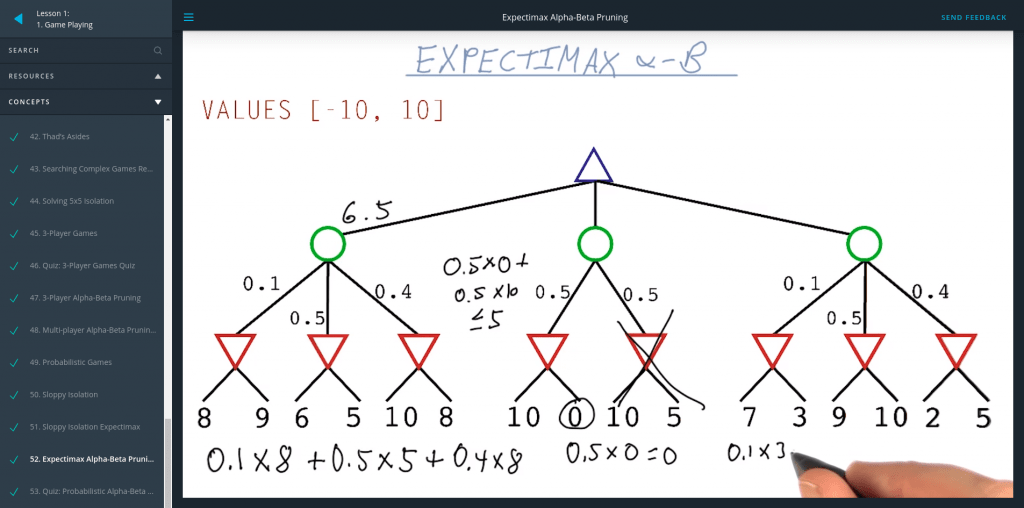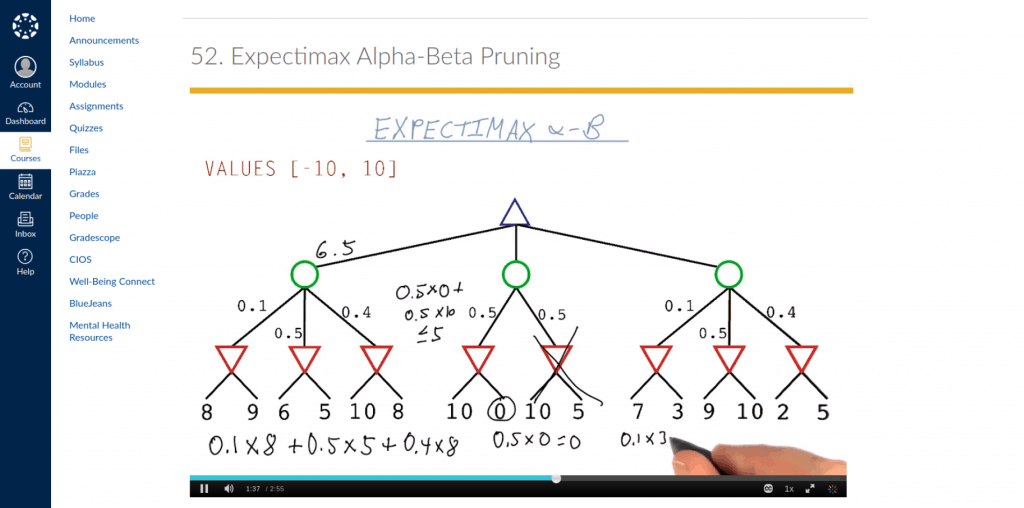Georgia Tech’s Computer Science Online Master’s Leaves Udacity
As Udacity’s and Georgia Tech’s paths diverged, the partnership made less and less sense.
As of fall 2020, Georgia Tech’s online master’s in computer science (OMSCS) isn’t offered through Udacity anymore but rather through Canvas, the university’s learning management system. This transition has been a long time in the making. As an OMSCS student myself, I saw it first hand. Here’s what happened.
Initial Partnership
OMSCS was developed jointly by Georgia Tech and Udacity, and was launched in Spring 2014. It was the first MOOC-based degree program. And it has grown to become the largest master’s degree program in the US and, possibly, the world — OMSCS has over 10k students.
Initially, Georgia Tech provided all the academic aspects, including faculty, administration, and formal assessments. Meanwhile, Udacity helped produce the courses and host them. But over the years, Udacity’s role shrank as Georgia Tech began to independently handle more aspects of the program.
Changes at Udacity

By the time OMSCS launched in spring 2014, Udacity had started pivoting away from academia and toward industry. In Nanodegrees, Udacity’s signature microcredential, academic subjects were deemphasized in favor of vocational ones, and university partnerships gave way to industry partnerships.
For example, thanks to a Udacity scholarship, I’m taking the Machine Learning Nanodegree. It’s a long-established Nanodegree and I’d heard good things about it: that it offered a well-rounded overview of machine learning. But last year, the Nanodegree was refreshed in partnership with AWS. At times, the new version has felt excessively promotional to me.
This pivot was also reflected in leadership changes. In April 2016, Udacity co-founder Sebastian Thrun, a Stanford professor who’d been instrumental to OMSCS’ creation, stepped down as CEO of Udacity. He was succeeded by Vishal Makhijani, a career executive who’d held top-level positions at companies such as Yahoo and Yandex.
Udacity’s relentless quest for profitability has led them to drastically increase prices. In 2019, they released eight times fewer free courses than in 2015, and their Nanodegrees cost four times more, as noted in Class Central’s end-of-year analysis.
By contrast, Georgia Tech’s OMSCS has remained rooted in academia and committed to its motto of “accessibility through affordability and technology.” With trajectories increasingly at odds, OMSCS began to feel out of place on Udacity’s platform.
Changes at Georgia Tech

Back when OMSCS was envisioned, MOOCs had only been popularized a couple of years prior by companies such as Udacity. So an advantage for Georgia Tech of partnering with Udacity was to benefit from their rare MOOC production know-how and strong visual identity.
But over time, Georgia Tech developed its own approach to MOOC creation and used it to launch two other MOOC-based degree programs: OMS Analytics and OMS Cybersecurity. This time, the programs were offered in partnership with edX rather than Udacity.
In spring 2019, Georgia Tech finished phasing out its ageing learning management system (LMS), T-Square, in favor of a more modern solution, Canvas. By integrating a video player, Kaltura, the new LMS paved the way for Georgia Tech to deliver its courses directly.
Note that by then, OMSCS had over 8k students and over 1k graduates per year. So while other degree programs might have needed to partner with MOOC providers to attract students, OMSCS had enough pull to stand on its own. And by cutting out the middleman, Georgia Tech would save money. Early documents showed Udacity’s initial cut being as high as 40%.
In spring 2020, Georgia Tech began porting their Udacity courses to Canvas. Existing courses, such as Computer Vision, would remain available on Udacity as MOOCs. But new courses, such as AI, Ethics, and Society or Deep Learning, would be released directly on Canvas. OMSCS offers over 40 courses, many available as MOOCs.
As of fall 2020, all OMSCS courses are delivered through Canvas. Georgia Tech has stopped creating Udacity accounts for new OMSCS students, bringing to a close the seven-year partnership between the university and the online course provider.
Class Central has been tracking Udacity’s evolution over the years. To learn more about the online course provider, head to our end-of-year analyses:







Muvaffak GOZAYDIN
My suggestion to Georgia Tech :
Set uıp a
Computer Science BS degree
Computer Science MS degree ( They have it )
Computer science Ph D degree First in the world .
Open to whole world .
I C L A I M that cost of online courses to be delivered to whole world is almost zero per student . But side benefits are enormous .
So make it international at $ 10 per course , make 100 million enrollmennt first in the world .
Due to corona every body go to online .
In Turkey today 4 million students in 200 universities will start 100 % online courses . If only 1 million students take only 1 course from Georgia Tech it makes $ 10 million per year . Not bad . Cost is zero ..
Please look up China . 200 mmillion online students this year , 260 million online students next year . Imagine no corona, noı floods interrupted education in CHINA . Smart people .
Charlie Doyle
I would love to see a BS in CS from GT. They could offer a BS degree for $10k or so, and start a long-overdue trend in cheap high-quality undergrad degrees. A $10k BS degree from a major university is doable, and GT knows it. They haven’t done this because the faculty doesn’t want to make education too cheap or automated; they want to hold onto their jobs. Ask Zvi Galil, the founder of OMSCS and former dean of the GT College of Computing, who repeatedly said that they started a cheap graduate degree first because the undergrad faculty wouldn’t cooperate with a cheap degree.
GT is also clinging to a silly idea that undergrad students should live on campus and experience real college life, at least for two years, to teach kids how to live away from mommy and daddy. They may have a point for some 19-year-olds, but for adult students and many poorer young students, GT and other colleges are just money gouging by forcing people to pay big money for on-campus courses. The ‘necessary campus life’ theory is counterproductive for society, and is mainly about not stirring up the faculty with too much ‘cheap degree’ talk.
I expect to see a cheap good CS undergrad degree by 2025. Sooner or later some school will do it, probably on edX, hopefully by Georgia Tech. The technology is ready, and tons of students will enroll. It’s an idea that can’t be stopped in the long run, despite the best efforts by faculty to thwart it.
Glenn Edgsr
Love your comment. I only hope that it comes true, and the powerful driver of capitalism – profit focus – doesn’t take over. Because one problem with capitalism, especially in publicly owned companies, is that short term profits can outweigh great long term profit – and discounted to the present – real life sustainable high profits for a company. The CEO may fear fo
r his high passing job if next quarter îs a disappointment. Several years may be only talked about to sound good. Academia may be a better long term thinking environment. I’m not sure.
A joke, but many a jest is said in truth. Chinese students should pay $20+, if the standard price is ever $10. LOL. I’m getting very sick of COVID. And evidence points to them. A livestock food market viral escape? With one of the very few Corona Virus research facilities in China, in the SAME town? Please, that explanation is insulting. SO Viral lab tech courses for Chinese should be $100! And maybe “Viral Research Security and Risk Management, we could offer to China. Cheap.
Glenn
Jared Stevens
Capitalism made those online degrees available in the first place.
GeorgiaTech is earning tens of millions of dollars that they wouldn’t have earned if they didn’t release their online degree.
If some university releases a Bachelor’s degree in CS, it would do it to earn more profit. Profit is good and necessary to create value.
Becca
Amen!
Wake up the seemingly ‘woke’
Maximillion Skippio
My two cents as a current OMSCS student:
It’s no easy task to maintain quality at scale. There are span-of-control limits for the number of students per TA (30-50 depending on the class), and the number of TAs per professor. Automation helps boost the ratios, but doesn’t eliminate them completely. You can’t rely 100% on auto-grading, since you still need to write essays and participate in discussions on the class forums. Programmers can be skilled cheaters, so you need human graders to double-check code submissions and review anti-cheat reports from tools like TurnItIn.com. The most needed class, Intro to Graduate Algorithms, is having trouble scaling past 450 students per semester. The wait-list for it is always maxed out at 999, so it’s impossible to take it until you’re almost about to graduate. Idk what the specific issues are, since I haven’t taken it yet. But I can tell you I’d rather deal with enrollment problems than for them to compromise its quality.
So no, $10 per person for a global rollout is not possible for a high quality degree. And I reject the idea that I should pay more than others just because of my nationality. The cost is not zero.
Mark Rose
University of the People. Accredited BS in Computer science. $100.00 per course. Takes transfers. Total cost from
Anonymous
Udacity are losing their credibility with time, profits and education don’t mix, what makes matter worse is that the competition like Coursera and Datacamp only maximizes as 50$ per month, while Udacity is charging 8 times the amount of this price, Google, IBM and Facebook abandoned Udacity in favor of Coursera everybody is abandoning them.
Also, it’s sad that the video lessons of Deep learning course for Georgia tech isn’t available
https://omscs.gatech.edu/cs-7643-deep-learning